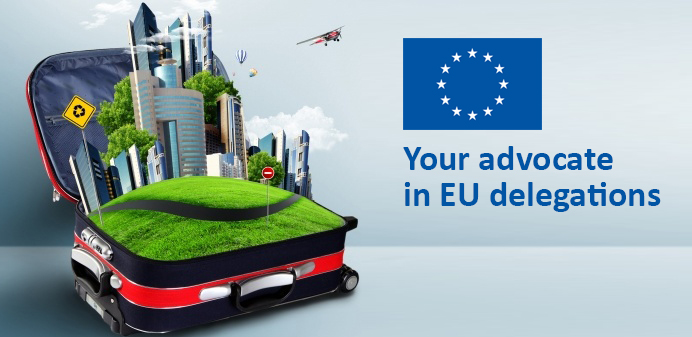EU delegations

The Egalité Committee has in 2018 asked the EEAS to implement the following measures:
- The External Action Service shall ensure that LGBTI+ staff has equal career opportunities in EU Delegations and missions around the world. In order to provide full information for staff considering applying for posts outside the EU, country “post reports” should systematically include information on possibility for same-sex spouses to obtain diplomatic visas, and what alternative solutions may exist if such visas cannot be granted.
- The EEAS shall provide assistance to same-sex couples in finding the most appropriate visa regime for their personal situations in countries for which EU staff members have been selected in EU Delegations and Missions around the world. In case no suitable visa arrangement can be found, another post shall be proposed to the staff member concerned, as LGBTI+ staff should have the equal career opportunities and the fact that they are in a same-sex relationship should not prevent them from advancing in their careers.
- EU staff members selected for posts in EU Delegations and Missions as well as staff involved in the selection process shall follow obligatory sensitivity and bias training. It is further recommended that local staff in Delegations and Missions should follow such training courses.
Postings for LGBTI+ to “non LGBTI+ friendly countries” are a complex and difficult issue. As different non-EU countries have different attitudes to LGBTI+ people, there is no one-size-fits-all approach.
There are some countries which will not recognize same-sex spouses and not issue diplomatic visas for them. In some cases, it may be possible for EEAS to intervene and request a same-sex spouse visa. In other cases, this approach is unrealistic and can create many problems. Possible solutions would be:
- The External Action Service to systematically include a chapter on LGBTI+ issues in country post reports for staff considering applying for posts in EU Delegations or EU missions around the world, including information on the possibility for same-sex spouses to obtain diplomatic visas. Where it is not possible to obtain a diplomatic visa for same-sex spouses, there are other pragmatic solutions which may be applied (working visa, “family member” visa, etc.). The EEAS should try to facilitate finding the best solutions for all staff and their families wherever they are posted, and irrespective of their sexual orientation, gender identity, gender expression or sex characteristics.
- Staff participating in selection panels in the rotation process for posts in EU Delegations should follow obligatory sensitivity and bias training (see point 1. above) as questions for staff applying for Delegation postings often include questions on the applicant’s family situation.
Local staff represents the largest category of staff in Delegations and are nationals of over 140 countries around the world, with very different legal and cultural situations as concerns LGBTI+ rights. It is therefore recommended that local staff, when recruited, follow sensitivity and bias training to better understand the values of the EU institutions we all work for.
We will inform you on the progress on these points.